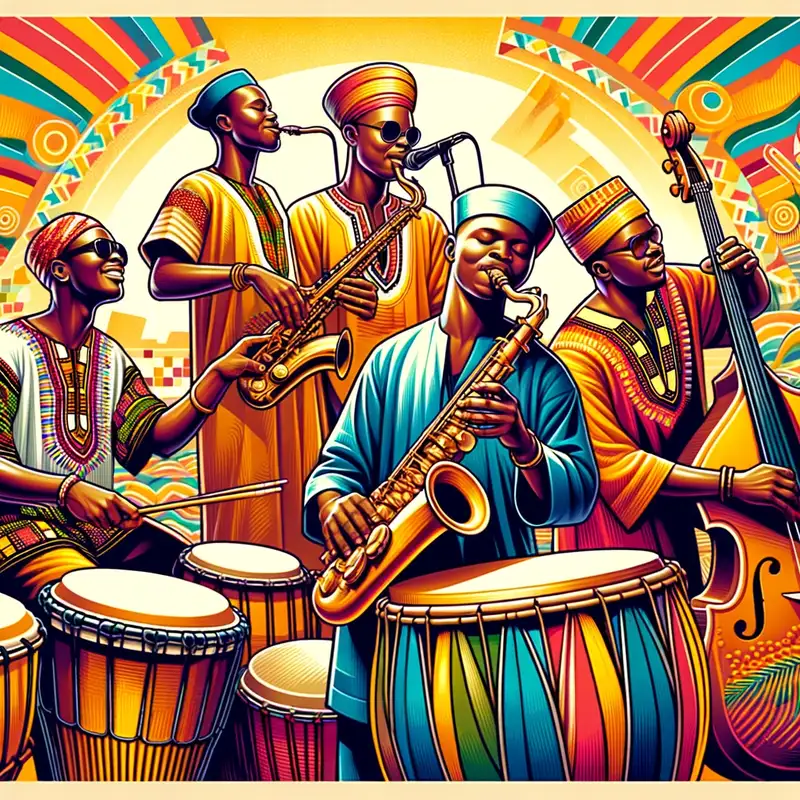Afrobeat

Afrobeat is a musical genre born in the vibrant cultural landscape of West Africa. Merging traditional African rhythms with jazz, funk, and highlife, Afrobeat has, over the decades, resonated with audiences worldwide.
Table of Contents
Origins and Evolution
Emerging from Nigeria and Ghana in the 1960s, Afrobeat was a musical revolution in its own right. It was pioneered by Fela Kuti, who, after being influenced by the sounds of James Brown and the Ghanaian highlife genre, created a new sound that incorporated traditional Yoruba music, jazz, and funk.
Fela’s politically charged lyrics, combined with the relentless rhythms of Afrobeat, made it both a danceable and thought-provoking genre.
Musical Characteristics
- Percussion-Driven: At its core, Afrobeat relies heavily on traditional African percussion instruments, including the talking drum, shekere, and congas.
- Brass Section: The vibrant sounds of trumpets, trombones, and saxophones are integral.
- Call-and-Response: Often, vocal patterns in Afrobeat songs involve a leader singing a line, with a chorus responding, mirroring traditional African musical practices.
- Extended Jams: Afrobeat songs can be lengthy, sometimes extending over 10 minutes, allowing for instrumental solos and gradual musical build-up.
- Political and Social Commentary: Lyrics often touch upon socio-political issues, advocating for justice, freedom, and challenging oppressive regimes.
Key Artists and Their Legacy
- Fela Kuti: Undoubtedly the kingpin of Afrobeat, Fela’s music and activism left an indelible mark. Songs like “Zombie” and “Water No Get Enemy” are iconic in the Afrobeat repertoire.
- Tony Allen: As Fela’s drummer, Allen played a pivotal role in shaping the Afrobeat rhythm. He is often credited as one of the primary architects of the genre.
- Seun and Femi Kuti: Fela’s sons have continued his legacy, incorporating contemporary sounds while staying true to original Afrobeat ethos.
- Antibalas: This Brooklyn-based group has been instrumental in bringing Afrobeat to Western audiences.
Global Influence
While Afrobeat has its roots in West Africa, its influence has reached far and wide.
Modern genres like Afroswing and Afrobeats (with an ‘s’ – a more pop-oriented genre) draw heavily from classic Afrobeat rhythms.
Artists like Burna Boy, Wizkid, and Yemi Alade have incorporated its elements into their chart-topping tracks.